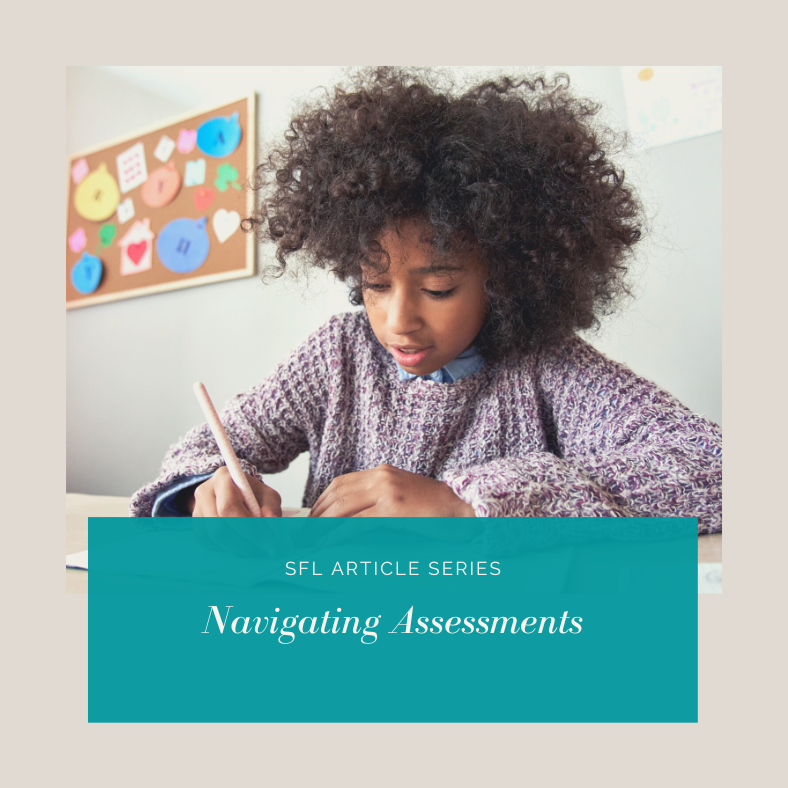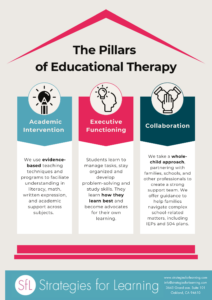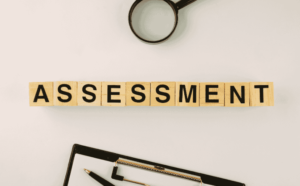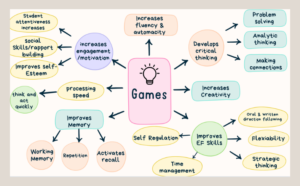No products in the cart.

Why Consider An Assessment For My Child?
The purpose of an assessment is to uncover a student’s areas of strength and weakness and determine how information is received and interpreted. An assessment can also provide a road map for guiding or informing the work of the educational therapist or specialist. Depending on the type of assessment, it may help identify school accommodations and supports and can inform educational environments tailored to your child’s needs.
When Is A Good Time to Seek An Assessment?
A professional may advise that you have your child assessed or you can independently seek an evaluation if you have concerns about your child. Here are some reasons why you may want to consider an assessment.
- High level of stress and anxiety over schoolwork
- Lack of confidence in their ability to learn
- Make frequent errors while reading
- Falling behind their peers
- Disconnect between a child’s potential and performance
- School refusal or loss of interest
- Poor time management, organization, and planning skills
- Procrastination and difficulty tackling long-term assignments
- Pattern of difficulty grasping new concepts and skills
- Daily homework battles or need for significant parental help
- Difficulty staying focused or easily distracted
What Is The Right Assessment For My Child?
SfL can help you figure out what kind of screening or assessment is needed — and why. If you have already had an evaluation or other testing done for your child, we can answer any questions and help you understand the results. If needed, we can provide referrals for other evaluations, including neuropsychological evaluation, auditory or visual processing evaluation, or speech and language evaluation. Because approaches and written reports can vary, it is important to seek a referral to a reputable and experienced professional.
What Assessments Does SfL Offer?
At SfL, we offer the Feifer Assessment of Reading (FAR) and Feifer Assessment of Mathematics (FAM). Both the FAR and the FAM give a good idea of the “why” behind any potential difficulties in reading and math and can flag for potential deeper considerations. They can screen for but do not formally diagnose dyslexia, dyscalculia or any other specific learning disability. It is a great option for families who want to get a better understanding of areas of concern within a particular domain and can help inform appropriate interventions. It is also a great option for families who may not want to pursue a comprehensive psychoeducational or neuropsychological assessment. Learn more about the FAR and FAM.
If you are looking for a more comprehensive evaluation like a psychoeducational or neuropsychological assessment, please contact us to learn more.
Additional Resources:







No comment yet, add your voice below!